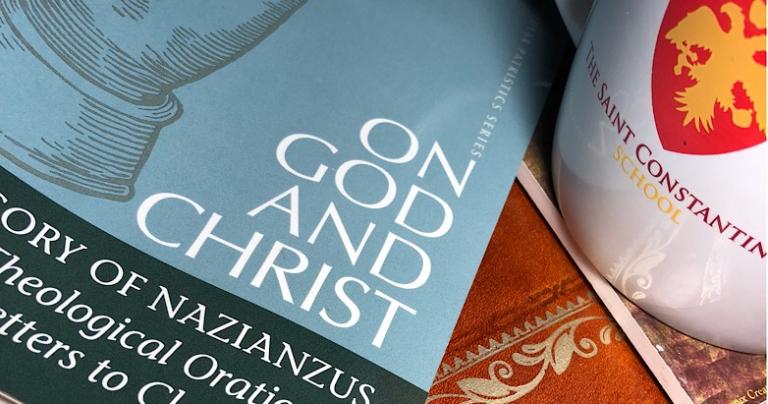 Gregory of Nazianzus wrote,
Gregory of Nazianzus wrote,
Conviction you see of a thing’s existence is quite different from knowledge of what it is.*
A child can ask for candy without understanding what candy is. She can even love candy, have a favorite candy, and still have only the subjective notion that “candy is the sweet food I like.” As she grows older, she will want to learn what candy is so she can predict what she might like in the store. A jar of honey is sweet, and she might even like a spoonful, but it is not candy.
Getting a good definition of candy can help but is not necessary for her to believe in the existence of candy. She knows that candy exists long before becoming a nutritional scientist!
It takes more than just a verbal definition to know what a thing is. For example, a full understanding of a thing might include knowing what makes it up. Mathematicians can use software to solve complex problems, knowing that those solutions are accurate even if they cannot check the work. They know that a thing may be proved without being able to do the proof. Evidence of existence for a proof need not include the proof itself!
So it is with God. Our experience of God and the arguments for His existence give us reason to know He exists, but that does not mean we have exhaustive knowledge of Him. These proofs do not even mean that such knowledge is possible. When we point to a “mystery” in theology, we do not mean something irrational, but something we do not understand—and may not even be able to understand. We use these truths, revealed to us by God, as axioms and see what happens.**
Word and Image, Reason and Revelation
We are limited by the words and images we have. When we say God is like something, this image may be accurate, but not complete. No being is able to capture the ground of being. Gregory warns that these images themselves can turn into substitutes for God: idols.
An idol is absurd because it is less than even the one worshiping the idol: a god made by something more godlike. The beauty of the creation and the cosmos, especially the beauty of humans, is a safer road to knowledge of God, so long as we recall that we are seeing shadows of His beauty.
He is, as Plato would say, known, but unknown. We know that God exists, we know some characteristics of His nature, and we know much of what God is not. We have nothing like exhaustive knowledge. Even the dialectic, properly used, can never give us such completion.
The subject is bigger than the one studying, the Word too difficult for our words to express, and the One impossible to fully see.
Christians honor those who saw and spoke with Jesus because He is God in human flesh. In His case words cooperated fully with the Word. His human nature expressed His divine nature to the very limits of Aramaic. His students, true disciples, received the Holy Spirit and described what they saw and heard as well as could be done within the limits of their language and understanding.
This revelation is enough to make us hungry for more experience. We ask God to send the Holy Spirit to come from the Father and show us the only begotten Son. We use the tools we have and find what we can, but humility must mark our intellectual journey. Christians have revelation, experience, the wisdom of the community over time, and our reason. We do the best we can!
Questions Upon Questions, Joys Upon Joys
The questions are endless as ancient writers like the author of Job and Gregory of Nazianzus liked to remind the reader. Today we can answer many of their questions about nature, but this does not end our study: we have simply gained more questions. Our understanding of reality is greater than theirs, but the questions never grow less.
This is fearsome to the guru or the one who confuses the life of faith with certainty, but it is joy-filled truth to the Christian.
The just live by faith and faith begins and ends in wonder. There are things we know, some right beliefs that are well tested and many right behaviors that have been confirmed over time, but even these must be applied. Even what God has surely revealed is not the end of our questioning, but a basis for new questions!
This is why many of us think it dull when some insist on returning to first things. They have a right to ask, again, if we have understood God correctly, but most of us have moved to more interesting questions. The new morality looks much like the old decadence and the new theology like yesterday’s heresy.
Instead, we wish to apply deep truths to new issues and create new possibilities. If we cannot do one thing, then we turn instead to look for something better.
“All truth, all philosophy, to be sure, is obscure, hard to trace out. It is like employing a small tool on big contractions, if we use wisdom in the hunt for knowledge of reality.”
———————-
*Gregory of Nazianzus Oration 28 translated by Lionel Wickham for Saint Vladimir’s Seminary Press.
**Of course, one can challenge those axioms or challenge the existence of God, but this is not a post dealing with those issues. Reasonable religious believers are happy to discuss both issues, but need not do so all the time!
Rachel Motte edited this essay and added the sub-headings.











